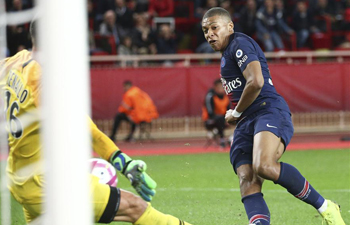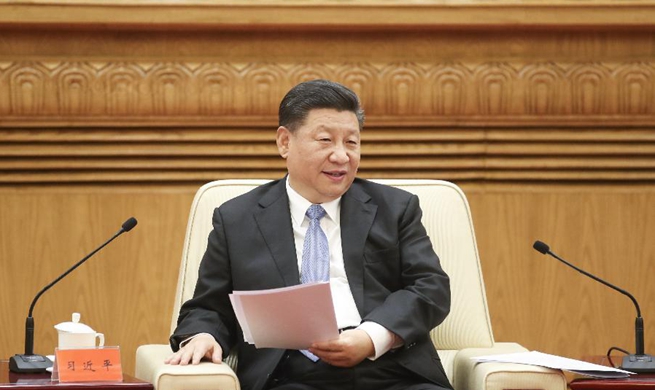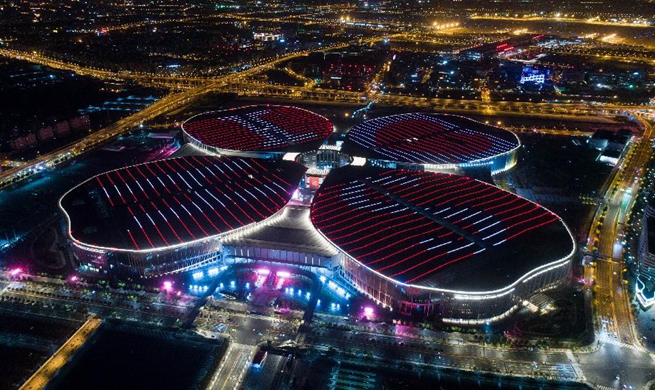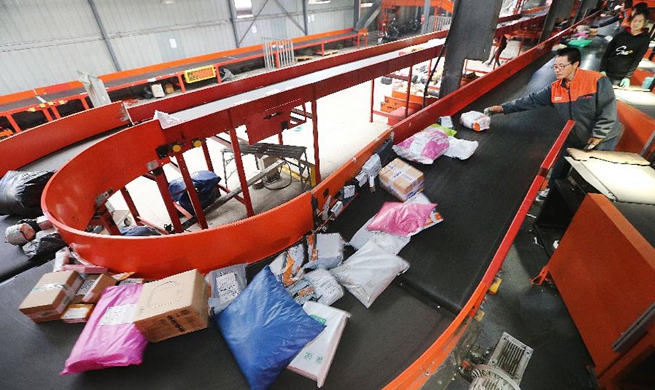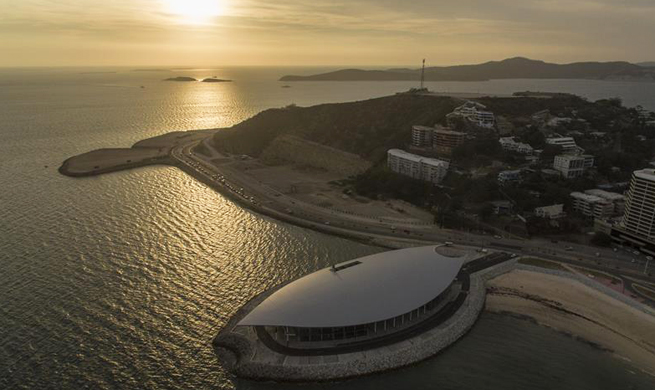LONDON, Nov. 12 (Xinhua) -- An alliance of politicians from Northern Ireland's political parties who are opposed to Brexit warned on Monday that a bad Brexit threatened peace in the province and could be "like a bomb going off".
"This is a crucial time in the Brexit negotiations; none of us wanted to see Brexit happen, but if it is going to happen we cannot be casualties of it - the people of Northern Ireland voted 56 percent in favor of staying in the European Union (EU)," Colum Eastwood, leader of the Social Democratic and Labor Party (SDLP), said at a press conference here in the UK capital.
"We value our peace process. The last thing that we could countenance is a hardening of the border and of our relationships across our island," Eastwood added.
"We have spent a lot of time building the stability we now have and Brexit has been like a bomb going off in the middle of that stability."
Eastwood was joined by three other leaders of Brexit-opposing political parties in Northern Ireland (NI) at the press briefing, which came as British Prime Minister Theresa May seeks to strike a Brexit deal with the EU.
A major hurdle in reaching a divorce agreement between Britain and the bloc has been a deal to keep the border between NI and the Republic of Ireland as a soft border without formal barriers. This is the only land border between Britain and EU.
The current invisible border is the core of the Good Friday Agreement (GFA) in 1998 which brought peace to NI after 30 years of conflict known as The Troubles fought between Irish nationalists, loyalists and the British government.
Brexit would bring the prospect of a hard border between NI and Ireland, unless agreement can be reached to keep Britain in the EU's Customs Union, disrupting the current border and threatening the stability enjoyed by NI since the GFA, agreed the four leaders.
The proposed solution is a "backstop" meant to only be used "unless and until" a better arrangement is agreed between the two sides after Brexit. But since it will be written into Britain's withdrawal treaty - the only binding EU-UK agreement that will be in place when Britain leaves the bloc on March 29 - it raises hard political choices for both sides.
Britain and the EU agreed at the end of 2017 on a backstop for NI, to be used after Brexit unless and until a better agreement was reached which aimed to avoid a hard border on the island of Ireland.
This could lead to a customs border between NI and mainland Britain, a position opposed by the major NI political party, the Democratic Unionist Party (DUP).
The DUP has 10 members of parliament at Westminster, who are in coalition with the Conservative Party to support May.
Sinn Fein (SF) Vice-President Michelle O'Neill told the briefing that collectively the four leaders represented 50 out of the 90 seats in the NI Assembly and despite political differences Brexit is one where all four parties shared a common ground.
"There is no good to come from Brexit, there is nothing positive in Brexit for the people of the north, it is causing great jeopardy in our peace process, to our economy, future jobs and prosperity," said O'Neill.
Stephen Farry, deputy leader of the Alliance Party, told the briefing that NI and the backstop is the major sticking point for the EU withdrawal agreement.
"At present the Conservative government is only listening to the DUP which is badly letting down the interests of NI by pursuing a hard and reckless Brexit. Any Brexit is going to be challenging for NI given that we are a divided society and we can only work based on sharing and independence and Brexit means new barriers."
The four party leaders were scheduled to later in the day meet Jeremy Corbyn, Labor leader and head of the major opposition party, and Vince Cable, leader of the Liberal Democrat Party in the British parliament.
Steven Agnew, leader of the Green Party NI (GPNI), said: "From the day after the Brexit vote the issue of the Irish border has been the sticking point but the problem is still there."
"The fact that we have been excluded from this process has been remiss at best but by refusing to meet us today the PM has shown that she is not seeking to represent the people of NI," he added.





